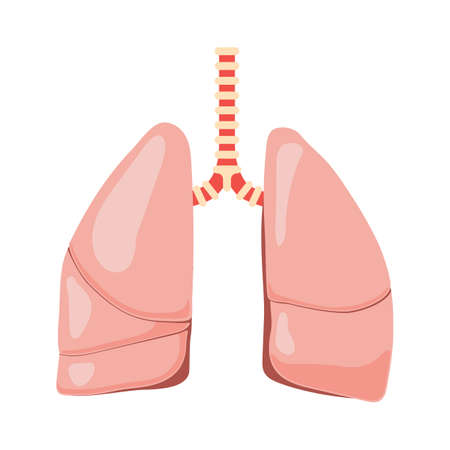1. Introduction: The Hype Around Protein
When it comes to muscle recovery, protein is a buzzword that dominates the conversations of young athletes across the UK. Whether its heard in the changing rooms after a Saturday morning football match or seen plastered across social media feeds, the belief in proteins power for building and repairing muscles is almost universal amongst British youth involved in sport. Supermarkets and corner shops alike now offer everything from high-protein yoghurts to ready-to-drink shakes, making it easier than ever for teenagers to get their hands on these products. The culture around protein has taken on a life of its own, fuelled by influencers, coaches, and even well-meaning parents eager to give their children every possible advantage on the pitch or in the gym. Yet, despite this widespread enthusiasm, there remains a significant gap between what young athletes believe about protein and what science actually says. This article aims to explore some of these common misconceptions, set against the unique backdrop of the UKs vibrant youth sports scene.
Common Misconceptions Among Young UK Athletes
It’s easy to see why protein is such a hot topic in the world of sports and fitness, especially among young athletes in the UK. With gym culture booming, social media influencers pushing supplements, and conflicting advice from mates and coaches alike, it’s no surprise that a handful of misconceptions have become widespread. Let’s explore some of the most common misunderstandings surrounding protein intake and muscle recovery.
‘More is Better’ – The Overconsumption Trap
One of the most prevalent myths is that consuming large amounts of protein leads to faster muscle recovery or bigger gains. Many young athletes, particularly those new to strength training, often believe that if a little is good, then a lot must be better. However, research consistently shows there’s a threshold for how much protein the body can effectively use at one time. Excessive intake doesn’t equate to extra muscle; instead, it can put unnecessary strain on the kidneys and simply be excreted.
| Belief | Reality |
|---|---|
| Eating more protein = more muscle growth | The body only utilises a set amount per meal (roughly 20-25g for most young adults); the rest offers no additional benefit |
Are Protein Shakes Essential?
A walk through any British gym or secondary school sports club will reveal countless shakers filled with protein drinks. It’s become almost a rite of passage for aspiring athletes. The misconception here is that protein shakes are essential for effective recovery or progress. In reality, while shakes offer convenience, they’re not superior to whole food sources such as eggs, chicken, beans, or Greek yoghurt. For many young athletes, well-balanced meals can provide all the necessary nutrients without the need for expensive supplements.
Protein Sources Comparison
| Source | Approximate Protein per Serving |
|---|---|
| Chicken breast (100g) | ~30g |
| Eggs (2 large) | ~12g |
| Whey shake (1 scoop) | ~20-25g |
Muddled Timing – When Should You Eat Protein?
The ‘anabolic window’ myth is another area where confusion reigns. Many believe you must consume protein immediately after exercise or risk losing out on potential gains. While timely nutrition does support recovery, recent studies suggest that total daily intake is far more important than precise timing for most young athletes—especially those training recreationally rather than at elite level.
Key Takeaway:
Rather than obsessing over shakes or packing in excessive amounts straight after training, focus on spreading your intake evenly throughout the day to support overall recovery and adaptation.

3. Protein Requirements: Science vs. Social Media
When it comes to muscle recovery, young athletes across the UK are often bombarded with conflicting advice about protein. Scrolling through Instagram, TikTok, or even hearing gym banter, you’ll quickly notice claims that can make anyone’s head spin. “You need at least 200g of protein a day!” or “Protein shakes after every session are a must!” seem to be common refrains. But what does the actual science say compared to these social media myths?
Evidence-Based Protein Needs for Young Athletes
Let’s cut through the noise. According to respected organisations like the British Dietetic Association and Sport England, the protein needs of adolescent athletes are certainly higher than those of sedentary individuals but not nearly as excessive as some influencers suggest. The general recommendation sits around 1.2 to 1.7 grams of protein per kilogram of body weight per day for active young people engaging in regular sport. For example, a 60kg teenage footballer would require roughly 72–102g daily—achievable through balanced meals without obsessive supplement use.
Where Social Media Gets It Wrong
Social media often pushes extremes: giant tubs of protein powder, double portions of chicken breast with every meal, and the idea that more is always better. This “bro science” approach tends to ignore individual needs and overlooks potential risks such as unnecessary strain on kidneys or simply wasting money on supplements that offer no extra benefit when basic dietary requirements are already met.
The Real-World Impact in UK Gyms and Sports Clubs
If you’ve ever chatted with mates in a local gym or after a school rugby match, you’ll know how these misconceptions spread fast. It’s easy to feel left out if you’re not downing protein shakes or loading up your plate with extra meat at every meal. But experience—and real data—shows us that it’s consistency and overall nutrition that matter most, not chasing a magic number promoted by someone online who doesn’t know your age, sport, or training load.
In summary, young athletes should focus on getting enough protein from everyday foods like lean meats, dairy, eggs, beans, and pulses, rather than being swayed by exaggerated claims circulating online or in changing room chats. Evidence-based advice will always trump social trends when it comes to building strength and supporting healthy recovery.
4. UK Perspective: Influences and Cultural Nuances
When discussing misconceptions about protein in muscle recovery, it’s crucial to recognise the unique British context that shapes young athletes’ beliefs and behaviours. Unlike global trends driven by social media or American fitness culture, the UK presents its own blend of influences—including traditional dietary habits, the ethos of local sports clubs, and the impact of homegrown sporting heroes.
British Dietary Habits and Protein Perception
The typical British diet has evolved over generations, with a historical emphasis on carbohydrate-rich staples like potatoes, bread, and cereals. Protein sources often take a back seat at family meals, especially compared to cultures where meat or dairy dominate every plate. This can lead to two main misconceptions among young athletes:
| Misconception | Reality |
|---|---|
| Protein is only important for bodybuilders. | All athletes require adequate protein for muscle repair and growth, regardless of sport or physique goals. |
| You get enough protein from a “normal” British diet. | Active young athletes may need more than what’s typically found in standard meals, especially if vegetarian or vegan. |
Sports Clubs: Tradition vs. Modern Science
Many UK sports clubs—whether school-based or community-run—carry strong traditions passed down through coaches who may rely on experience over current science. There’s often a focus on team spirit and hard work, but less structured education around nutrition. As a result:
- Athletes may copy senior players’ habits rather than seeking evidence-based advice.
- Nutritional guidance can be generalised (“eat well,” “don’t skip breakfast”) instead of specific to recovery needs.
Influence of Local Role Models
The presence of British sporting icons can cut both ways. On one hand, seeing Olympians and Premier League stars talk about their diets raises awareness of nutrition’s importance. On the other hand, media snippets often highlight extreme regimens or supplement endorsements—fueling the notion that success requires special shakes or expensive products.
Cultural Comparison: UK vs. Other Countries
| Factor | UK | USA |
|---|---|---|
| Main protein source | Dairy (milk), moderate meat intake | High red/white meat consumption |
| Nutrition education in youth sports | Often informal, coach-led | Structured programmes more common |
| Attitude towards supplements | Skeptical or trend-driven | Mainstream, widely accepted |
This web of cultural nuances means that UK young athletes are influenced not just by what they eat at home, but by club traditions and the media narratives around them. Addressing misconceptions requires sensitivity to these factors—meeting athletes where they are, with practical advice rooted in their real experiences.
5. Risks of Getting Protein Wrong
When it comes to muscle recovery, young athletes in the UK are often bombarded with advice—much of it centred on protein intake. But getting your protein strategy wrong carries real consequences, both for your health and your performance on the pitch or in the gym.
The Danger of Over-Reliance on Supplements
Its tempting to believe that a quick shake or a handful of bars will give you an edge. While supplements are convenient, relying too heavily on them can actually undermine your progress. Unlike whole foods, many supplements lack other vital nutrients—think fibre, healthy fats, and a broad spectrum of vitamins—that contribute to overall recovery and well-being. Plus, some protein powders contain additives or sweeteners that may not do your gut any favours.
Health Implications: More Isnt Always Better
Too much protein can put unnecessary strain on your kidneys over time, especially if you’re not balancing it with enough fluids or if you have underlying health conditions. In addition, excessive protein intake at the expense of carbohydrates and fats can disrupt energy levels, making it harder to train at your best. Remember, its all about balance—the classic British approach applies here as much as anywhere else.
The Performance Cost of Poor Protein Habits
If youre not getting the right kind of protein at the right times—or if youre skimping on variety—you could be missing out on essential amino acids needed for muscle repair. This might mean slower recovery, more frequent injuries, and ultimately, less time doing what you love. In a culture where teamwork and consistent effort are valued, letting poor nutrition habits set you back is simply not worth it.
For young UK athletes striving to make their mark, understanding these risks is crucial. It’s not just about hitting a number—it’s about getting quality protein from diverse sources and integrating it into a well-rounded diet. That way, youll stay healthier, recover faster, and keep performing at your peak season after season.
6. Practical Guidance for Young Athletes and Coaches
Understanding Real Protein Needs
Many young athletes in the UK mistakenly believe that more protein always equals better muscle recovery. However, scientific evidence and practical experience show that excessive protein offers no extra benefit and could even put unnecessary strain on the body. For most teenage athletes, aiming for 1.2 to 1.7 grams of protein per kilogram of body weight per day is sufficient. This can be easily met through a typical British diet without resorting to expensive supplements.
Focusing on Whole Foods First
It’s tempting to rely on protein shakes or bars, especially given their popularity in British gym culture. Yet, whole foods like eggs, lean meats, fish, dairy, beans, and pulses not only provide high-quality protein but also deliver vital micronutrients for overall health. Parents and coaches should encourage a ‘food first’ approach—think scrambled eggs on toast after training or a chicken and bean salad for lunch rather than reaching straight for a supplement.
Timing Isn’t Everything
A common myth among UK youth teams is that you need to consume protein immediately after exercise or risk missing out on recovery gains. In reality, total daily intake matters far more than precise timing. Spreading protein intake evenly across meals—breakfast, lunch, dinner, and snacks—helps maximise muscle repair without overcomplicating things.
Supplements: When Are They Actually Needed?
The supplement industry in Britain is booming, but for most young athletes, these products are unnecessary and sometimes risky due to contamination concerns. Only consider supplements if you have specific dietary restrictions (such as being vegan) or struggle to meet your needs through food alone—and always choose reputable UK-registered brands with Informed-Sport certification.
Debunking Key Myths
- Myth: “You need huge amounts of protein to build muscle.”
Reality: Moderate amounts spread throughout the day are enough; excess is simply wasted. - Myth: “Supplements are essential for all serious athletes.”
Reality: Most can get everything they need from a balanced diet rooted in traditional British foods. - Myth: “Protein alone ensures recovery.”
Reality: Carbohydrates, hydration, sleep, and consistent training matter just as much—if not more!
By focusing on balanced meals, realistic expectations, and sound evidence rather than gym gossip or social media trends, young British athletes and their coaches can support healthy growth and performance safely—and skip the hype.
7. Conclusion: Reframing the Protein Conversation
It’s clear that misconceptions about protein and muscle recovery are still widespread among young athletes in the UK. Too often, the focus is placed solely on protein shakes and supplements, rather than a holistic view of nutrition, rest, and training. As coaches, parents, and athletes ourselves, we need to encourage a balanced and evidence-based approach to recovery—one that values whole foods, proper hydration, sleep, and a tailored training schedule alongside sensible protein intake.
There’s a real need for better education within UK athletics communities. Many young people look up to professional athletes or social media influencers who may not always promote scientifically sound advice. By fostering open conversations around nutrition and debunking common myths together, we empower our young sportspeople to make informed decisions that support long-term health and performance—rather than chasing quick fixes or fads.
Ultimately, reframing the protein conversation means putting science at the heart of our advice, while also recognising the unique pressures facing youth athletes today. Let’s champion nutritional literacy in our clubs and schools, support honest discussions about recovery strategies, and give every young athlete the tools they need to thrive both on and off the field.

